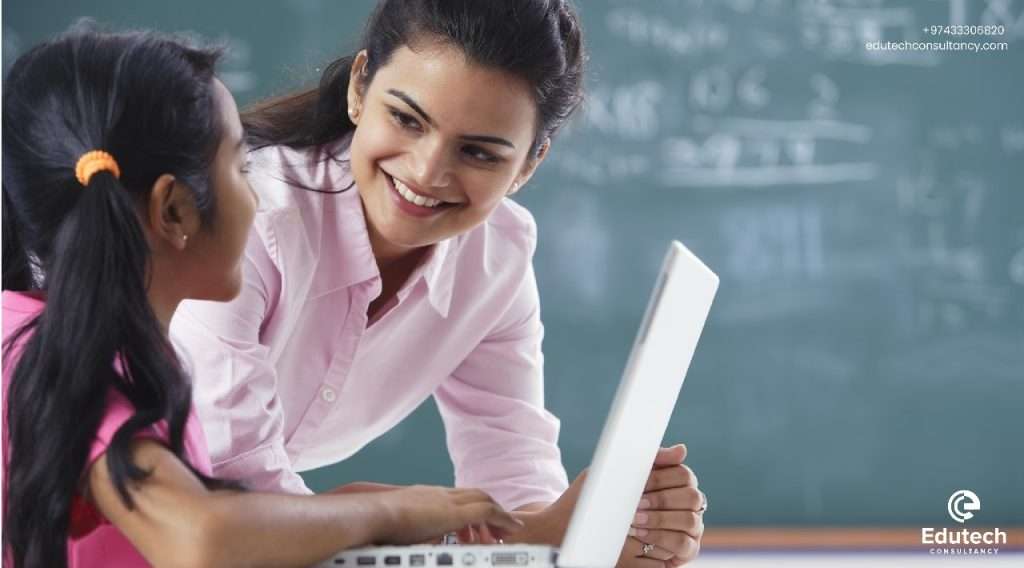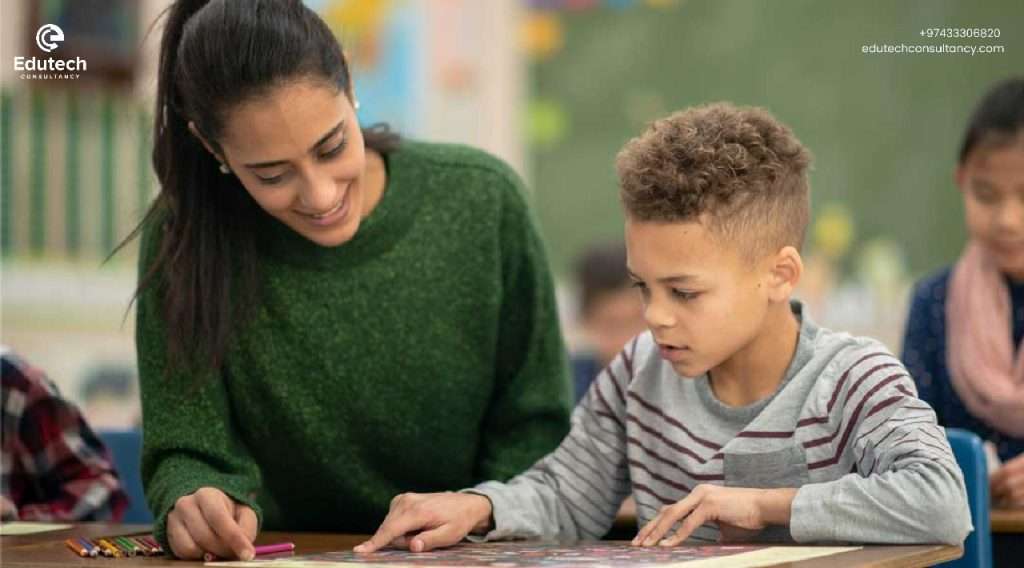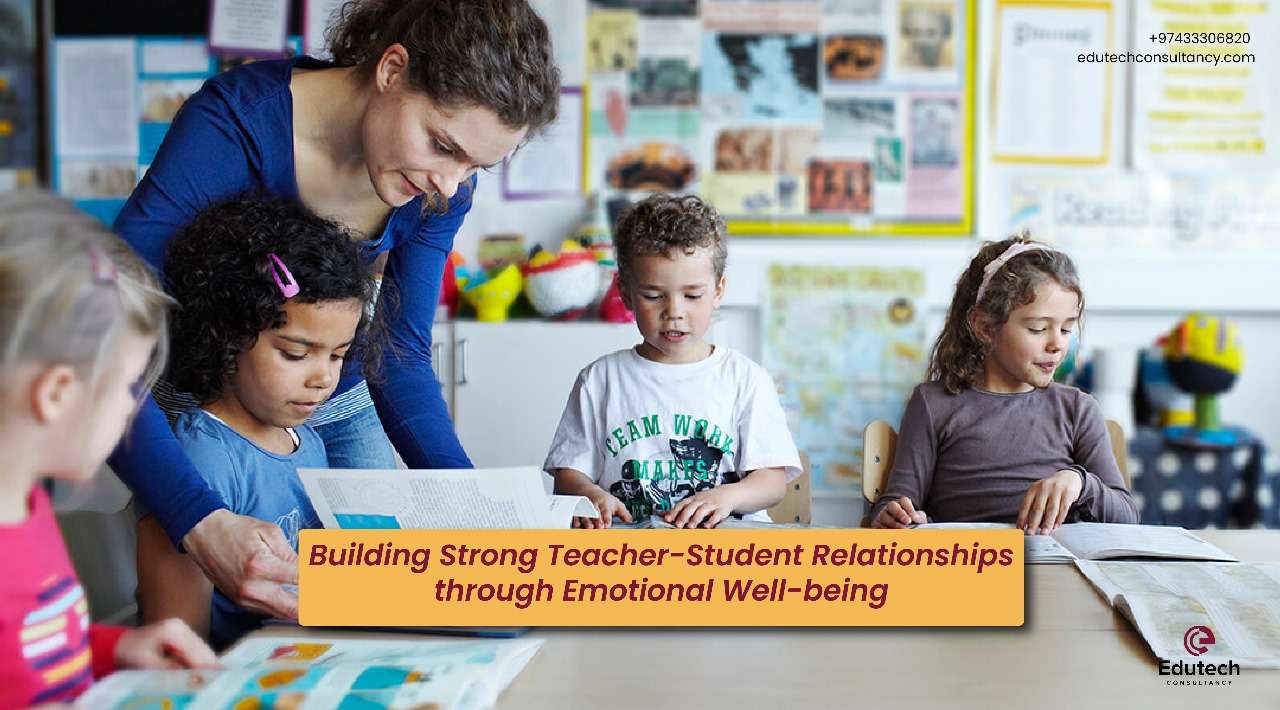Education is a multifaceted and complex process requiring strong teacher-student relationships. The teacher-student relationship is, in fact, a two-way street where either party strives together to adopt empathy and compassion. The relationship between a teacher and student is not just a result of effective teaching; it is also one of the fundamental elements that build character and promote social and personal development. As we explore establishing teacher-student relationships, we will discuss some of the factors crucial in creating positive learning, an inclusive environment, and successful learning; herein, one of the most important factors is the “emotional well-being” of the learner.
Teacher-student relationships and its significance
The foundation for achieving the most effective educational outcomes and the “emotional wellness” of learners is a positive and productive learning environment. Amongst the essential abilities are the following:
- Empathy
- Self-awareness
- Social development
- Emotional self-control
- Ability to cope with stress
However, emotional well-being correlates with active student engagement, safety, and inclusivity. For educators, this means interacting with students, attending to their needs, and encouraging a supportive learning environment in the classroom. Similarly, it is suggested that students in good mental health are more likely to participate fully in class, act appropriately, and perform at their highest level. In response, teachers have higher levels of personal happiness, lower levels of stress, and better job satisfaction. As a result, it is possible to view the process of promoting emotional well-being as one that benefits both parties and assists learners in acquiring their academic goals.
Strategies for Building Strong Teacher-Student Relationships
Empathy
Empathy is the capacity to perceive the emotions of other people and to act on these emotions. To develop empathy for the students, teachers must actively listen to them, respect their feelings, and provide a compassionate response. There are multiple ways to accomplish this. Firstly, they can arrange daily meetings and ensure that the classroom environment encourages listening and appreciation. Secondly, they can identify the requirements of each student. Lastly, they can create effective teaching tactics for students to maintain an inclusive classroom atmosphere where students of diverse origins and races are respected.
Open Communication
As a matter of common observation, “Communication” is one of the fundamental aspects of a successful relationship. Teachers should provide an environment for free speech; this refers to students being free to communicate their thoughts, plans of action, aims, and academic goals. However, in an academic setting, students often employ both vocal (use of language) and non-vocal modes of communication, including:
- Eye contact
- Facial expressions
- Gestures/body language

Thus, it is necessary to establish and regularly employ communication mechanisms, such as office hours, discussion boards, and feedback sessions, to strengthen the teacher-student connection.
Safe and Inclusive Environment
In the educational landscape, it is pivotal to create a safe and inclusive classroom where students feel appreciated. Thus, an educator can play a profound role by encouraging inclusion, appreciating diversity, and confronting bullying. Furthermore, educators may help sustain a respectful and supportive classroom atmosphere with established standards, boundaries, and constant reinforcement of good behavior.
Encouraging Emotional Expression and Regulation
Students should be encouraged to express their emotions in a healthy and constructive manner. Teachers can facilitate this by integrating social-emotional learning (SEL) into the curriculum. This allows students to explore and discuss their emotions and teaches them coping strategies for managing stress and anxiety. Techniques such as mindfulness and journaling can also help students develop emotional regulation skills.
Emotional Expression
Teachers should encourage learners to express the range of emotions they are experiencing in a healthy manner. Additionally, it is recommended to introduce social-emotional learning (SEL) in a classroom. This provides an open platform for the students to present their emotions and issues. The educators can give guidance regarding stress and anxiety as well as students’ emotions and introduce effective coping strategies to the students. These effective coping strategies inclusive of the following:
- Journaling
- Mindfulness
- Peer support groups
Support and Encouragement
Establishing clarity, coherence, and credibility is crucial at the outset of any communication. Acknowledging their endeavors and achievements is one way that instructors show their support for their students. Teachers can effectively use constructive criticism, encouragement, and positive reinforcement to increase students’ morale. Additionally, this can strengthen the teacher’s social relationship with students.
The Impact of Emotional Well-being on Student-Teacher Relationships
Emotional well-being refers to a person’s ability to manage their emotions. Consequently, how they cope with stress and build positive relationships is also an integral part of emotional well-being. When discussing classrooms, the relationship between emotional well-being and student-teacher interaction is powerful. By highlighting the importance of both educators, we can create an environment that empowers students to reach their full potential.

The correlation between the student’s emotional well-being and the student-teacher relationship is well documented. With sound emotional well-being, students participate actively in their academic activities and challenges.
Teacher’s role in the emotional well-being of students
Teachers play an integral role in promoting emotional well-being in the classroom. By incorporating social-emotional learning (SEL) strategies, they can cultivate a supportive and inclusive environment. We have mentioned numerous ways teachers can build meaningful relationships with students and enhance their emotional well-being.
Final Words
Therefore, nurturing the emotional well-being of the students in developing good teacher-student relationships is a conscious developmental process that is sustained over time to be effective. According to the emotional aspect, one can provide the atmosphere within the school that can have a positive impact on the student’s performance as well as their mental and social health development. The role of educators is to be aware of the importance of the emotional aspect and include it in the process of learning and teaching.
Thus, if you are an early childhood educator and want to create conditions for the development of values for a new generation of emotionally resilient students, enroll in the Emotional well-being course by Global Childhood Academy. Edutech Consultancy collaborated with GCA to bring this comprehensive course to Early Childhood Educators so they can boost their skills and expertise in their teaching methods.
To subscribe to the course, click here!


